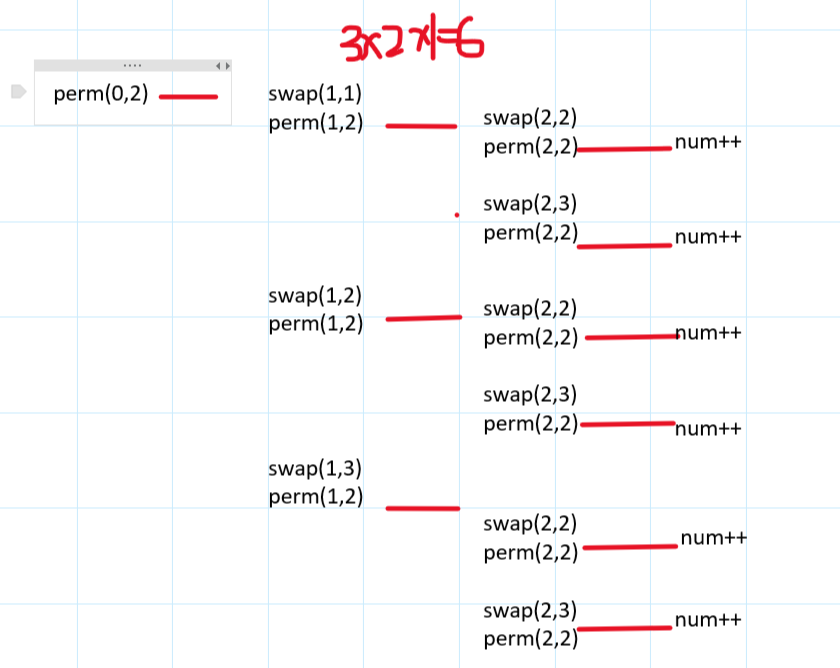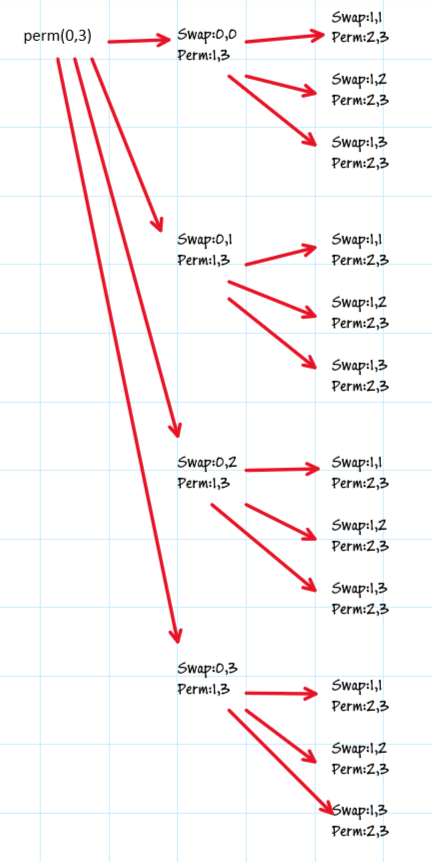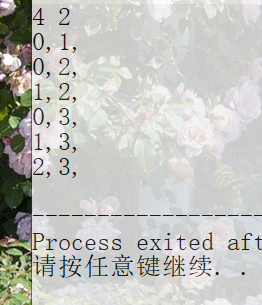打印从n个数的全排列:
#include<iostream>
#include<algorithm>
#include<ctime>
#define Swap(a,b) {int temp=a;a=b;b=temp;}
using namespace std;
int data[]={1,2,3,4,5,6,7,8,9,10,32,15,18,33};
int num = 0;
int Perm(int begin,int end)
{
int i;
if(begin==end)
{
num++;
}
else
{
for(i=begin;i<=end;++i)
{
Swap(data[begin],data[i]);
Perm(begin+1,end);
Swap(data[begin],data[i]);
}
}
}
int main()
{
clock_t start,end;
start = clock();
Perm(0,9);
end = clock();
cout<<(double)(end-start)/CLOCKS_PER_SEC<<endl;
cout<<num<<endl;
return 0;
}
解析:以perm(0,2)为例:

打印从n个数种选取m个数的组合数:
#include<iostream>
#include<algorithm>
#include<ctime>
#define Swap(a,b) {int temp=a;a=b;b=temp;}
using namespace std;
int data[]={1,2,3,4,5,6,7,8,9,10,32,15,18,33};
int num = 0;
int Perm(int begin,int end)
{
int i;
if(begin==2)
{
num++;
cout<<num<<":"<<data[0]<<data[1]<<endl;
}
else
{
for(i=begin;i<=end;++i)
{
Swap(data[begin],data[i]);
cout<<"Swap:"<<begin<<","<<i<<endl;
cout<<"Perm:"<<begin+1<<","<<end<<endl;
Perm(begin+1,end);
Swap(data[begin],data[i]);
}
}
}
int main()
{
clock_t start,end;
start = clock();
Perm(0,3);
end = clock();
cout<<(double)(end-start)/CLOCKS_PER_SEC<<endl;
cout<<num<<endl;
return 0;
}
解析:以4取2为例,这里有2个位置第一个位置有4种取法,第二个有3种取法,4X3=12

4.2子集生成和组合
二进制表示子集:
#include<iostream>
using namespace std;
void print_subset(int n)
{
for(int i=0;i<(1<<n);++i)
{
for(int j=0;j<n;++j)
if(i&(1<<j))
cout<<j<<" ";
cout<<":"<<i+1<<"<<"<<endl;
}
}
int main()
{
int n;
cin>>n;
print_subset(n);
}

打印n个数中任意m个数的组合:
将这个问题转换为列出一个数集(大小为n)的子集,统计其中元素个数为m的集合有几个
#include<iostream>
using namespace std;
void print_set(int n,int k)
{
for(int i=0;i<(1<<n);++i)
{
int num = 0,kk = i;
while(kk)
{
kk = kk&(kk-1);
num++;
}
if(num==k)
{
for(int j=0;j<n;++j)
{
if(i&(1<<j))
{
cout<<j<<",";
}
}
cout<<endl;
}
}
}
int main()
{
int n,k;
cin>>n>>k;
print_set(n,k);
}
